Variable Properties in Language Their Nature and Acquisition (Georgetown University Round Table on Languages and Linguistics Series)
4.5
بر اساس نظر کاربران

شما میتونید سوالاتتون در باره کتاب رو از هوش مصنوعیش بعد از ورود بپرسید
هر دانلود یا پرسش از هوش مصنوعی 2 امتیاز لازم دارد، برای بدست آوردن امتیاز رایگان، به صفحه ی راهنمای امتیازات سر بزنید و یک سری کار ارزشمند انجام بدینکتاب های مرتبط:
معرفی کتاب: ویژگیهای متغیر در زبان: ماهیت و اکتساب
کتاب ویژگیهای متغیر در زبان: ماهیت و اکتساب اثری است که در سری گردهمایی دانشگاه جورجتاون در مورد زبانها و زبانشناسی به چاپ رسیده است. این کتاب نگاهی عمیق و پژوهشمحور به نحوه تغییر و تنوع ویژگیهای زبانی در طول یادگیری زبان، هم در کودکان و هم بزرگسالان، ارائه میدهد. هدف اصلی این اثر بررسی ماهیت متغیرهای زبانی و زمینههای پیچیده یادگیری آنها است. کتاب شامل مقالاتی از زبانشناسان برجسته است که همگی به دنبال کشف چگونگی پیوند بین زبان، شناخت و محیط هستند.
چکیدهای جامع از کتاب
این کتاب بر روی ایدههای اصلی در زبانشناسی نظری و تجربی متمرکز است و نشان میدهد که چگونه ویژگیهای زبانی میتوانند تحت تأثیر عوامل مختلف به صورت متغیر باشند. از تأثیر محیطی و عوامل اجتماعی گرفته تا ساختارهای درونی زبان، تمام این متغیرها در یادگیری زبان نقش ایفا میکنند. کتاب با استفاده از دادههای تجربی و نگاه تطبیقی به زبانهای مختلف جهان، تلاش دارد شیوههایی را که در آن تغییرات زبانی رخ میدهد، تحلیل کند.
در این اثر، مفاهیم نظری مانند Variable Rules، Language Acquisition، و Universal Grammar مورد بررسی قرار گرفتهاند و نویسندگان تلاش کردهاند تا درک عمیقتری از چگونگی تعادل میان ثبات (Consistency) و تغییر (Variability) در سیستمهای زبانی ایجاد کنند.
نکات کلیدی
- اهمیت ویژگیهای متغیر در زبان و نقش آنها در یادگیری زبان جدید.
- چگونگی تأثیر عوامل بیرونی، مانند محیط و فرهنگ، بر فرایند یادگیری زبان.
- نکات ارزندهای درخصوص تعامل Universal Grammar و تجارب زبانی.
- تطابق میان نظریههای زبانشناسی قدیمی و دادههای جدید تجربی.
نقلقولهای مشهور از کتاب
«زبانها مدام در حال تغییر هستند، اما این تغییر تصادفی نیست؛ بلکه محصول تعامل دقیق بین ذهن انسان و محیط زبانی است.»
«یادگیری زبان، فرآیندی پیچیده و چندوجهی است که نشانگر تنوع درونی ذهن انسان است.»
چرا این کتاب اهمیت دارد؟
درک ویژگیهای متغیر در زبان به زبانشناسان و پژوهشگران کمک میکند تا تصویر دقیقتری از نحوه یادگیری و تغییر زبانها داشته باشند. این کتاب، با ارائه مجموعهای از پژوهشهای معتبر، برای دانشجویان زبانشناسی، پژوهشگران حوزه شناخت زبان و هر کسی که به مطالعه عمیق این حوزه علاقهمند است، ضروری به نظر میرسد. این اثر نه تنها شکافهای موجود در درک ما از تغییرات زبانی را پر میکند، بلکه مسیرهای جدیدی برای مطالعه زبان به وجود میآورد.
Introduction to "Variable Properties in Language: Their Nature and Acquisition"
Language is one of the most dynamic aspects of human interaction, and its variability is one of the most intriguing subjects in linguistics. "Variable Properties in Language: Their Nature and Acquisition," stemming from the stimulating discussions of the Georgetown University Round Table on Languages and Linguistics, offers profound insights into how and why languages possess variable properties. This book delves into the intricate relationship between linguistic variability, language acquisition, and the cognitive processes underlying them.
Authored and edited by leading linguists David W. Lightfoot and Jonathan Havenhill, this volume synthesizes critical research from linguistics, psycholinguistics, and language development. The book presents an interdisciplinary approach, examining the remarkable diversity in human languages and how this variability is acquired and processed, both by native speakers and language learners. This collection of essays and research makes significant contributions to understanding fundamental linguistic principles such as grammar, syntax, phonology, sociolinguistic variation, and the role of environmental and internal factors in shaping language over time.
Detailed Summary of the Book
The central theme of the book revolves around the nature of linguistic variability and its role in language acquisition. Each chapter explores individual aspects of this theme from diverse perspectives. The contributors examine how linguistic variability manifests in grammar, phonetics, morphology, and syntax, offering cross-linguistic comparisons to contextualize patterns of variability. The book also takes a closer look at language acquisition, both first and second language learning, and unpacks the delicate interplay between innate linguistic capabilities and environmental factors such as exposure and interaction.
This compilation features cutting-edge research on variable properties, offering examples from various languages across the globe. Notable topics explored include diachronic variability and change, the impact of social settings on linguistic variation, and the role of personal identity in shaping language use. The authors also highlight advancements in theoretical linguistics, supported by experimental data, to shed light on how humans internalize, understand, and reproduce variable patterns in language.
In essence, the book serves as a bridge between theoretical inquiry and empirical evidence, addressing longstanding questions about why language is inherently variable and how variability is managed across different linguistic contexts.
Key Takeaways
- Language variability is a crucial characteristic of all human languages, illustrating both diversity and adaptability.
- Environmental factors, cultural norms, and innate linguistic mechanisms all play pivotal roles in shaping variable properties in language.
- Linguistic variability is central to understanding language acquisition processes in both native speakers and second-language learners.
- Studying variability gives insights into larger questions of cognitive science, memory, and human communication.
- Advances in linguistic theory provide practical applications for fields such as language teaching, AI linguistics, and sociolinguistics.
Famous Quotes from the Book
"Language is not a static system but a living, breathing entity, shaped by its users and their interplay with the world."
"Variability in language is not a flaw but an astonishing feature, attesting to the creativity and resilience of human cognition."
Why This Book Matters
In the ever-evolving field of linguistics, understanding the variable properties of language is vital not only for studying how languages are structured and used but also for addressing critical questions about human communication and cognition. This book stands as a significant contribution to this endeavor, offering a comprehensive examination of linguistic variation and acquisition in a variety of contexts.
For researchers and students, the book provides a rich tapestry of theories, data, and frameworks that advance our understanding of how language works at a fundamental level. For practitioners such as language educators and computational linguists, the insights into linguistic variability offer practical implications for curriculum design and natural language processing tools.
More than anything, this book matters because it challenges us to reimagine language not as a monolithic system, but as a remarkable mosaic of variations, each piece connecting us to the broader landscape of human expression.
دانلود رایگان مستقیم
شما میتونید سوالاتتون در باره کتاب رو از هوش مصنوعیش بعد از ورود بپرسید
دسترسی به کتابها از طریق پلتفرمهای قانونی و کتابخانههای عمومی نه تنها از حقوق نویسندگان و ناشران حمایت میکند، بلکه به پایداری فرهنگ کتابخوانی نیز کمک میرساند. پیش از دانلود، لحظهای به بررسی این گزینهها فکر کنید.
این کتاب رو در پلتفرم های دیگه ببینید
WorldCat به شما کمک میکنه تا کتاب ها رو در کتابخانه های سراسر دنیا پیدا کنید
امتیازها، نظرات تخصصی و صحبت ها درباره کتاب را در Goodreads ببینید
کتابهای کمیاب یا دست دوم را در AbeBooks پیدا کنید و بخرید
1301
بازدید4.5
امتیاز0
نظر98%
رضایتنظرات:
4.5
بر اساس 0 نظر کاربران
Questions & Answers
Ask questions about this book or help others by answering
No questions yet. Be the first to ask!


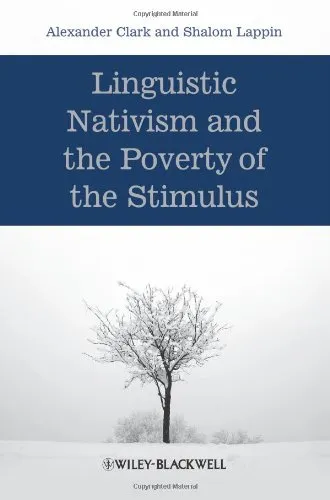


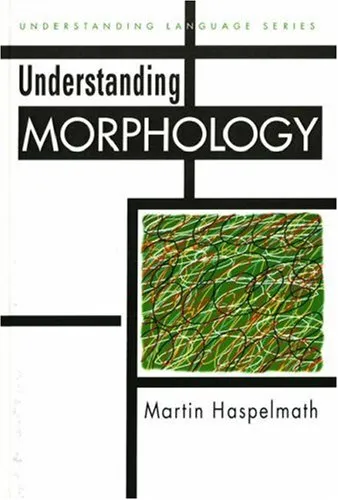
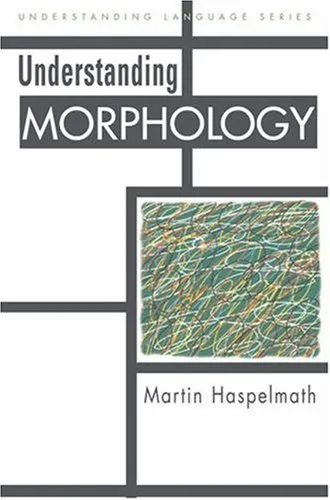





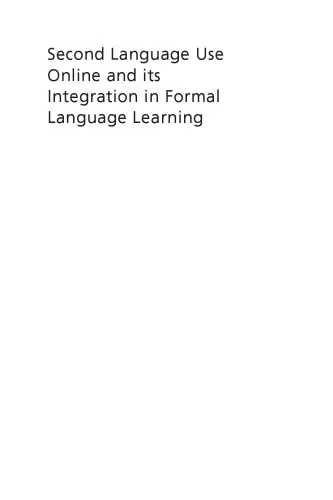
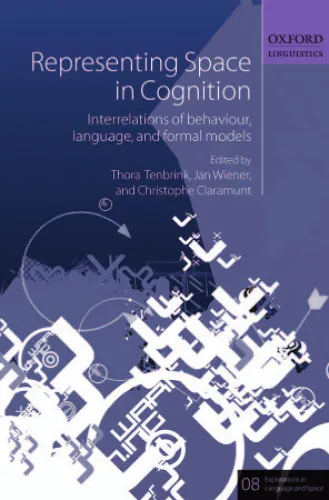
![Trends in Linguistics. Studies and Monographs [TiLSM]; 113](https://s3.refhub.ir/images/thumb/Trends_in_Linguistics__Studies_and_Monographs_43772.webp)
